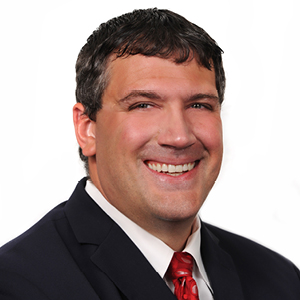Blowing up Ohio property taxes would be draconian step. There is a better plan.
Jun 17, 2025The Columbus Dispatch first published this opinion piece.
Opposition to rising property taxes is mounting across the country.
Civic leaders and grassroots taxpayer organizations in Pennsylvania, Florida, and Michigan have openly questioned the legality and logic of taxing homeownership.
And in Ohio, a citizen-led constitutional amendment effort hopes to abolish property taxes completely.
With property taxes jumping 20-30 percent recently, the sentiment—and resentment—is understandable. Property tax rates are expected to rise even more in the foreseeable future, and cash-strapped homeowners and businesses already struggling to keep pace with inflation will continue to bear the brunt of the burden.
But abolishing property taxes is no quick-fix or as easy as it sounds.
Local governments rely heavily on property tax revenues to pay for police and fire departments, public schools, road maintenance, libraries, parks, and health and human services.
Eliminating property taxes will cost local governments and the services they provide more than $20 billion in annual revenue.
Less draconian steps can and should be taken, however, to relieve Ohio’s throbbing property tax headache and fix the broken local government structure that causes it.
The state’s archaic local government and tax systems confuse voters, deploy resources and revenues inefficiently, and allow property taxes to rise virtually automatically without being put to a vote. Legislative reforms in the General Assembly cannot fully correct Ohio’s systemic problem in the long run, but some statutory relief may be on the way and at least takes a good first step.
House Bill 335, the Property Tax Relief NOW Act, introduced by Representatives Dave Thomas (R- Jefferson) and Bill Roemer (R- Richfield), addresses some of the worst aspects of the state’s property tax regime.
The bill prohibits school districts and local governments from collecting new taxes from homeowners without voter consent. It clarifies confusing ballot language and limits the bewildering array of local levies and their perplexing rules. And it empowers county budget commissions to lower property tax rates from other local governments when necessary to keep the overall tax burden in check.
These initial legislative remedies help treat a painful, festering symptom, but they do not cure the disease. As The Buckeye Institute explained nearly 15 years ago, and numerous times since, Ohio’s property tax problem ultimately stems from the state’s over-complicated patchwork of 4,000 local taxing authorities. Without transformational, structural change, Ohio taxpayers will continue to suffer under rising, unsustainable property taxes.
Communities must coordinate
The road to property tax recovery and good economic health doesn’t require the constitutional abolition of property taxes, but it does require county commissioner approval for all local levies, streamlining village dissolutions to remove unnecessary local layers more quickly, and eliminating special property tax breaks that benefit developers at the expense of homeowners.
And it likely means consolidating local governments, making cooperative purchases, sharing scalable emergency services, and revisiting recommendations in Governor Kasich’s “Beyond Boundaries” initiative. Taking these commonsense steps will reduce a bloated tax burden and get communities thinking and talking about how they pay for essential public services.
Maybe the anti-property tax movement will succeed.
But without a revenue stream ready to replace it, and without comprehensive, structural reform to Ohio’s inherently inefficient local government system, community costs will continue to rise—and so will the taxes needed to pay for them.
House Bill 335 is a welcome effort that will close a few loopholes, rein in automatic tax hikes, and shine some light into the local government shadows. But it won’t fix the real problem and neither will abolishing property taxes, because they can’t.
Greg R. Lawson is a research fellow at The Buckeye Institute.

